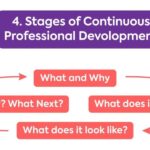Companies are getting new teammates, and their name is AI. Artificial intelligence is one of the most significant developments in the technology space within the last few years. Google searches are scanning results and summarizing them instantaneously. ChatGPT suggests itineraries and travel plans, revises resumes and generates marketing copy.
Even though AI is in its beginning stages, technology is transforming how everyone gets things done and lives. While you may have heard or even been using some of AI’s most common use cases for the workplace, have you tapped into its full potential? Below are some innovative ways that you can start adapting for your business.
24/7 Customer Service
When consumers have a question, they want an answer ASAP. They want to feel like the brand is meeting their needs and treating them like unique customers who are being taken care of promptly and reasonably. They like having 24/7 support because they don’t want to wait for business hours. If they feel like their question is going unanswered, they will take their business elsewhere.
In today’s always-on world, meeting customers’ increasing demands can be difficult for business owners. While having a dedicated customer service or support team seems like the straightforward answer, it can be costly. Ensuring someone is online and ready for answers at any time of day isn’t always realistic either. That’s why many companies have begun using AI-powered webchats to fuel or supplement their customer service experience.
AI webchats can easily and swiftly answer users’ questions. For example, a standard query such as “track my order” can be answered directly. For more complicated questions, a service team can provide additional support. AI webchats can also automatically book appointments for industries such as salons or car dealerships. AI-driven automotive sales software can schedule potential leads with dealership staff or set up a time for a sales representative to call them with more details.
This level of customer service will give your business a competitive edge, nurturing more leads and more conversions. Setting up webchats or similar software tools is relatively easy. Ensure the platform is user-friendly and uncomplicated, testing it frequently to edit or alter any answers.
Workflows
Just because this is how a process has always been done doesn’t necessarily mean that’s the best way. One of the many benefits of AI is its ability to handle mundane tasks. Take a look at your and your team’s day. Are there instances where you are doing something repetitively? If so, there’s a good chance that AI can take care of it. These tasks can be easily performed with AI, from data entry to email organization to scheduling to invoicing.
Additionally, AI can also analyze current workflows and provide recommendations. It is recommended that its capabilities be used to analyze large datasets instead of manually inputting them. Not only will this save time, but there is less chance of human error. AI may also find bottlenecks within your current system and reorganize it to provide a better flow.
For example, in the healthcare industry, AI can optimize scheduling so doctors have enough time with patients instead of feeling rushed or overbooked. It can also assist with administrative tasks such as recaps and reports. This allows doctors to focus solely on their patients instead of constantly worrying about the more routine parts of their job. Doctors are experiencing less burnout, and patients get the care they deserve.
Cybersecurity and Fraud Protection
Privacy is at the top of business owners’ and consumers’ minds. Business leaders want consumers to trust them, so they need to keep their private information under lock and key. However, with so much data readily available online, breaches and cybersecurity attacks are becoming more mainstream. Therefore, consumers are more discerning in who they provide their information and are quick to switch to another company if they feel their information is at risk.
Every company needs to keep customer’s personal information secure. Thankfully, AI can help by enhancing cybersecurity efforts and protecting companies and individuals from fraud. AI can detect threats in real-time, allowing businesses to answer them promptly. It can also look for patterns and identify areas where a potential breach may occur. Regarding past occurrences, AI can also look at historical data to finetune any loopholes and ensure your company is secure from similar threats.
Numerous AI-driven platforms are available specifically for security purposes. However, it’s important to remember that hackers are clever and likely also using AI. With that in mind, you can use AI tools to enhance your security efforts, but don’t rely on them entirely. Do your due diligence and ensure you have humans involved to keep everyone’s information safe.
Takeaways
AI is changing the workplace for the better, and it’s only the beginning. This technology is reshaping how employees complete their work, making them more efficient and productive. While we don’t know what’s on the horizon for AI, we can expect more excellent capabilities with advanced learning degrees. All that said, remember that AI is just a tool, and it should continue to be treated like one.
Published by Stephanie M.

















